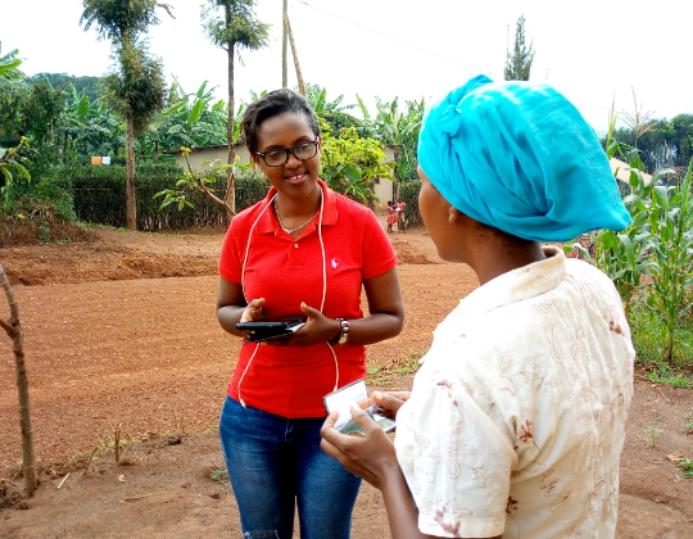The use of digital technologies for sound decision making
Enabel
optimizes its own internal processes and systems using the latest technologies
in communication, management and results monitoring. We support out partners to
build knowledge-driven institutions through the development of ‘open data’
strategies underpinned by the use and analysis of big data. This ranges from
data of telecommunications operators to the provision of geographical
information collected by interventions.
Example from Rwanda: Mobile data collection for
the BE1-EARP intervention’s baseline
The Belgian
contribution to the Electricity Access Roll-Out Programme (BE1-EARP) aims to improve
the access to reliable on-grid electricity services in rural areas in
Rwamagana, Ngoma and Kirehe districts. The main activity to achieve this is the
electricity grid extension in specific lots in these districts with the
construction of new transmission and distributing lines connected to the
national electricity network. The existing houses, public institutions and
businesses in the intervention area are then connected to this grid.
In the end
of 2017, the construction works in Rwamagana were completed. Parallel with the
final stage of the works in December, the intervention conducted a survey
amongst a large sample of beneficiaries. Out of apx. 8000 new connections, a
sample of 954 households and 152 non-households (non-residential customers such
as small businesses and churches, and to a smaller extent also schools, health
centers and cell offices) were interviewed using Kobo Toolbox, an open source
mobile data collection tool.
Increased data quality through mobile data
collection
The survey
is conducted by use of a mobile data collection tool, Kobo Toolbox. After a one-day training and a pilot survey, a team
of 7 data collectors visited all respondents for face-to-face interviews and
presented them a set of questions. Answers were registered on tablets,
containing the pre-programmed surveys with apx. 50-70 questions (taking into
account different scenarios in the course of the survey). A great advantage of
Kobo Toolbox is that it can be used offline, as all the interviews took place
in remote areas.
However,
the improved data quality is the most important advantage. The data collectors
upload the completed surveys every evening to the Kobo platform, which then
automatically generates a database of collected data. This allows real-time
monitoring and easy data analysis. The skip patterns and validation functions
(build-in limitations for data entry) inside the tool ensure both the logic of
the survey and of the answer to each question.
Working
with digital tools also avoids the risk of post-survey data entry mistakes,
which is often the case with paper based surveys.
Through the
survey, data were collected regarding the current energy consumption of
households and non-households, and their intentions and expectations regarding
the future (after connection to the on-grid electricity). The obtained data
allow the intervention to better understand the potential results on outcome
level as well as they point out challenges to be considered.
53% of the
sampled households responded using torchlights to brighten their houses (possibly
in combination with other traditional sources), while others are found using
candles and off-grid solar lamps as lighting solutions.
97.8% of
households and 99.3% of non-households expressed their willingness to connect
to the grid. People not only expect to better their lives with improved
lighting solutions, they also foresee positive changes in the community as
electricity opens up new economic opportunities, improve health facilities and
delivery of public services.
However,
the biggest challenge is the cost of electricity and its affordability for the
households. The current energy related expenditures of sampled households are
found to be on average a monthly 1905 RwF. With this amount, households will
not be able to consume more electricity than what is required for basic lighting
and mobile phone battery charging. The looming question is thus will the cost of
electricity risks prohibit certain section of household to reap the benefits of
electricity despite being connected to the grid? Are the benefits for the
population sufficient to justify an investment equivalent to apx. 300 months of
electricity consumption for the average household?
A similar
baseline survey will take place in Ngoma and Kirehe during the next months. In
a second phase, there will be a follow-up survey amongst the same sample of
beneficiaries in all 3 districts. The follow-up survey is planned to take place
minimum 1 year after the baseline survey and will serve to get better insight
in whether and to what extent beneficiaries make use of electricity, the
reasons why they potentially don’t and whether or not access to on-grid
electricity has resulted into (direct or indirect) socio-economic results, and thereby
provides data for the intervention to measure results on outcome level.
Latest news from this project
No news

